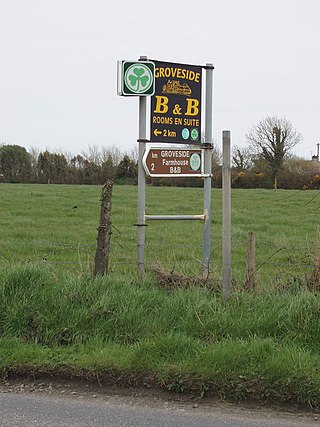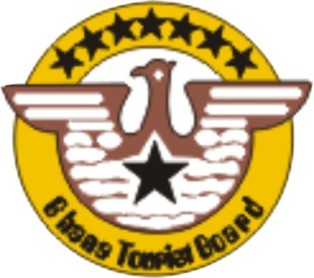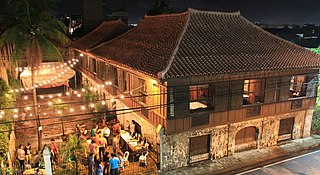Related Research Articles

The modern Mfantsefo or Fante confederacy is a combination of Akan people and aboriginal Guan people. The Fante people are mainly located in the Central and Western regions of Ghana, occupying the forest and coastal areas. Their land stretches from the eastern part of western region in the west to Gomoa in the east. The Fante can be broadly categorized into two groups - the Borbor Fante and the Etsii Fante who are also aboriginal Guan people. Over the last half century, Fante communities have been established as far as Gambia, Liberia, and even Angola due to fishing expeditions. Major Fante cities in modern Ghana include Oguaa, Edina (Elmina),Agona Swedru, Mankessim, Saltpond, Komenda and Anomabo.

Taglit-Birthright Israel, also known as Birthright Israel or simply Birthright, is a free ten-day heritage trip to Israel, Jerusalem, and the Golan Heights for young adults of Jewish heritage between the ages of 18 and 26. The program is sponsored by the Birthright Israel Foundation, whose donors subsidize participation.

Elmina Castle was erected by the Portuguese in 1482 as Castelo de São Jorge da Mina, also known as Castelo da Mina or simply Mina, in present-day Elmina, Ghana, formerly the Gold Coast. It was the first trading post built on the Gulf of Guinea, and the oldest European building in existence south of the Sahara.

Elmina, also known as Edina by the local Fante, is a town and the capital of the Komenda/Edina/Eguafo/Abirem District on the south coast of Ghana in the Central Region, situated on a bay on the Atlantic Ocean, 12 kilometres west of Cape Coast. Elmina was the first European settlement in West Africa and it has a population of 33,576 people.

African American Lives is a PBS television miniseries hosted by historian Henry Louis Gates Jr., focusing on African American genealogical research. The family histories of prominent people of African American descent are explored using traditional genealogic techniques as well as genetic analysis.

The Journey of Man: A Genetic Odyssey is a 2002 book by Spencer Wells, an American geneticist and anthropologist, in which he uses techniques and theories of genetics and evolutionary biology to trace the geographical dispersal of early human migrations out of Africa. The book was made into a TV documentary in 2003.

Fáilte Ireland is the operating name of the National Tourism Development Authority of the Republic of Ireland. This authority was established under the National Tourism Development Authority Act of 2003 to replace and build upon the functions of Bord Fáilte, its predecessor organisation. The organisation was established to support the development and promotion of tourism within the Republic of Ireland, and it undertakes tourism marketing, training and research activities.
The history of African-American settlement in Africa extends to the beginnings of ex-slave repatriation to Africa from European colonies in the Americas.

Tourism is an important economic sector for many countries in Africa. There are many countries that benefit heavily from tourism like Uganda, Algeria, Egypt, South Africa, Kenya, Morocco, Tunisia, Ghana and Tanzania. The touristic particularity of Africa lies in the wide variety of points of interest, diversity and multitudes of landscapes as well as the rich cultural heritage. Also, an ecotourist industry is present in some African countries.

Birthright Armenia, also known as Depi Hayk, is a volunteer internship enhancement program for diaspora Armenians that also offers travel reimbursements to eligible participants to assist in the development of Armenia.

The Ministry of Tourism, Arts & Culture (MoTAC) Ghana is the government ministry responsible for the development and promotion of tourism-related activities in the country.

An ancestral home is the place of origin of one's extended family, particularly the home owned and preserved by the same family for several generations. The term can refer to an individual house or estate, or to a broader geographic area such as a town, a region, or an entire country. An ancestral home may be a physical place, part of a series of places that one associates with state, nation or region. In the latter cases, the phrase ancestral homeland might be used. In particular, the concept of a diaspora requires the concept of an ancestral home from which the diaspora emanates. However, it is also possible that "[t]he family living in an ancestral home is surrounded by visible, physical symbols of family continuity and solidarity".

Asafo are traditional warrior groups in Akan culture, based on lineal descent. The word derives from sa, meaning war, and fo, meaning people. The traditional role of the Asafo companies was defence of the state. As the result of contact with European colonial powers on the Gold Coast, the Fante, who inhabit the coastal region, developed an especially complex version of the concept in terms of its social and political organization based on martial principles, and with elaborate traditions of visual art, including flag banners with figurative scenes, and designs alluding to historical events or proverbs.
Tourism in Ghana is regulated by the Ministry of Tourism, Arts & Culture. This ministry is responsible for the development and promotion of tourism related activities in Ghana.
The history of African Americans in Ghana goes back to individuals such as American civil rights activist and writer W. E. B. Du Bois (1868–1963), who settled in Ghana in the last years of his life and is buried in the capital, Accra. Since then, other African Americans who are descended from slaves imported from areas within the present-day jurisdiction of Ghana and neighboring states have applied for permanent resident status in Ghana. As of 2015, the number of African American residents has been estimated at around 3,000 people, a large portion of whom live in Accra.

The Door of Return is an emblem of African Renaissance and is a pan-African initiative that seeks to launch a new era of cooperation between Africa and its diaspora in the 21st century. The initiative is Chaired by the Hon. Timothy E. McPherson Jr., Minister of Finance for the Accompong Maroons in Jamaica, and is being spearheaded across Africa in cooperation with Nigeria, Ghana and Zimbabwe as part of the United Nations's International Decade for People of African Descent. The name is a reference to the "Door of No Return", a monument commemorating the transatlantic slave trade.
The Year of Return, Ghana 2019 is an initiative of the government of Ghana – along with the U.S.-based Adinkra Group – that is intended to encourage African diasporans to come to Africa to settle and invest in the continent. It was formally launched by President Nana Akufo-Addo in September 2018 in Washington, D.C. as a program for Africans in the diaspora to unite with Africans. The year 2019 is symbolic as it commemorates 400 years since the first enslaved Africans touched down in Hampton, in the English colony of Virginia in America. The program also recognizes the diaspora's achievements and sacrifices in the time since that event. Starting from when President Barack Obama made a visit to the Cape Coast in 2009, many famous, respected and admired African-Americans from the diaspora have visited Ghana to discover its culture. The Ghana Tourism Authority and the Ministry of Tourism, Arts and Culture lined up a slate of activities in "celebration of the resilience of the African spirit." Many African Americans shared their stories regarding their experiences in Ghana during the Year of Return.
The Ghana Tourism Authority is a Ghanaian state agency under the Ministry of Tourism, Culture and Creative Arts responsible for the regulation of tourism in Ghana by marketing, promoting, licensing, classifying, researching and developing tourism facilities and services in the country.

African American genealogy is a field of genealogy pertaining specifically to the African American population of the United States. African American genealogists who document the families, family histories, and lineages of African Americans are faced with unique challenges owing to the slave practices of the Antebellum South and North. These challenges rise from a range of events, including name changes following the American Civil War, the act of separating families for sale as slaves, lack of issued birth or death records for slaves, etc.
The Assin Manso Ancestral Slave River also called Nnonkonsuo or Donkor Nsuo (singular) was one of the slave markets for gathering indigenes during the trans-Atlantic slave trade. It is located in the Central Region of Ghana, forty (40) kilometers along the Cape Coast-Kumasi highway.
References
- ↑ Feng, K., and Page, S. (2000). "An exploratory study of tourism, migration–immigration nexus: Travel experience of Chinese residence in New Zealand". Current Issues of Tourism, 3(3), 246–281.
- ↑ Tomczewska-Popowycz, N., & Taras, V. (2022). The many names of “Roots tourism”: An integrative review of the terminology. Journal of Hospitality and Tourism Management, 50, 245-258.
- ↑ Bord Fáilte (2001), Genealogy Facts 2000. Dublin: Bord Fáilte, Market research Planning
- ↑ "Genealogy in Poland - Polin Travel". www.jewish-guide.pl.
- ↑ Clarke, K. M. "Mapping Transnationality: Roots Tourism and the Institutionalization of Ethnic Heritage". In K. M. Clarke & D.A. Thomas (Eds.), Globalization and Race: Transformations in the Cultural Production of Blackness, Duke University Press, Durham, 2006. pp. 133-153.
- ↑ de Santana Pinho, P. "African-American roots tourism in Brazil", Latin American Perspectives, 2008, Vol.35 No. 3, pp 70-86.
- 1 2 Mensah, I (2015): The roots tourism experience of diaspora Africans: A focus on the Cape Coast and Elmina Castles, Journal of Heritage Tourism, DOI:10.1080/1743873X.2014.990974
- ↑ Higginbotham, G. (2012). Seeking roots and tracing lineages: constructing a framework of reference for roots and genealogical tourism. Journal of Heritage Tourism, 7(3), 189-203.